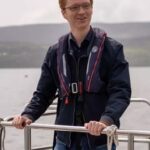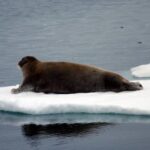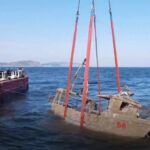Tag Archives: School for Marine Science and Technology
SMAST’s Kevin Stokesbury: On scallops, community collaboration, and a lifelong love of the ocean
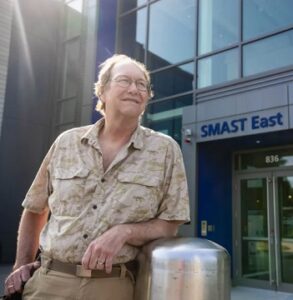 Growing up on the Bay of Fundy in Nova Scotia, Kevin Stokesbury spent as much time as possible swimming, searching for sand shrimp, and soaking up the sun with his siblings. Now as dean of the School for Marine Science and Technology (SMAST) at UMass Dartmouth, he’s finding practical applications for his passion with the sea. Stokesbury has played an integral role in revitalizing the scallop industry in New Bedford, inventing a drop camera in 1999 that snapped photos of scallops living on the seafloor, giving scientists and fishermen much more precise estimates of scallop numbers than previously available. The location map and information accompanying the photographs have proved vital. Stokesbury’s invention has greatly boosted the local economy. Before the drop camera, scallop boats brought in an annual harvest valued around $89 million. In 2021, it was $670 million, according to a NOAA commercial landings report. Video, Photos, >click to read< 17:41
Growing up on the Bay of Fundy in Nova Scotia, Kevin Stokesbury spent as much time as possible swimming, searching for sand shrimp, and soaking up the sun with his siblings. Now as dean of the School for Marine Science and Technology (SMAST) at UMass Dartmouth, he’s finding practical applications for his passion with the sea. Stokesbury has played an integral role in revitalizing the scallop industry in New Bedford, inventing a drop camera in 1999 that snapped photos of scallops living on the seafloor, giving scientists and fishermen much more precise estimates of scallop numbers than previously available. The location map and information accompanying the photographs have proved vital. Stokesbury’s invention has greatly boosted the local economy. Before the drop camera, scallop boats brought in an annual harvest valued around $89 million. In 2021, it was $670 million, according to a NOAA commercial landings report. Video, Photos, >click to read< 17:41
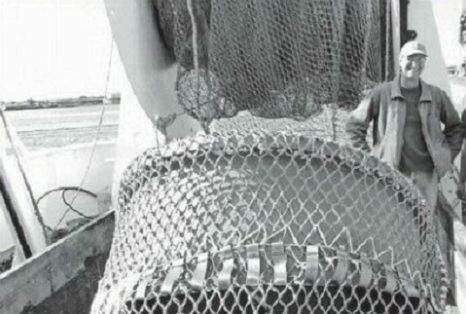
Jim Kendall – Finding Common Ground
With regard to the letter from Sam Novello posted on Fisherynation.com, Finding Common Ground off to a Bad Start, he very eloquently laid out some of the faults, errors, and out and out incompetence of the Northeast Fisheries Science Center with respect to their continued mismanagement of the Northeast fisheries stock assessments. I know from past work and associations with the NEFSC that this has been going on for so long that they likely now believe their own Mantra about their science being the best (and only way) in which to compile the NE groundfish stock assessment. Unfortunately groundfish is not their only problematic stock assessment. >click to read< 16:32
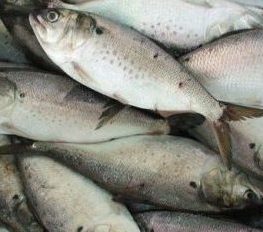
Science Center for Marine Fisheries Releases Evaluation and Summary of Latest Atlantic Menhaden Assessments
Dr. Steve Cadrin, Professor at the School for Marine Science and Technology at the University of Massachusetts Dartmouth and past President of the American Institute of Fishery Research Biologists, has completed an evaluation and summary of the latest Southeast Data, Assessment, and Review (SEDAR) Atlantic menhaden stock assessments. >click to read< 15:58
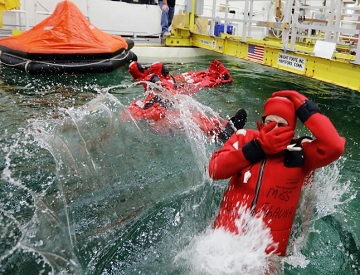
Free training prepares fishermen because ‘every second counts in an emergency at sea’
Fishing Partnership Support Services is offering programs in New Bedford to make life safer for those who have one of the world’s most dangerous jobs, commercial fishing. Safety and Survival Training will be from 7 a.m. to 3 p.m. March 7 at the School for Marine Science and Technology of the University of Massachusetts, 706 S. Rodney French Blvd. Drill Conductor Training will be at the same location from 8 a.m. to 4 p.m. March 8. There is no charge for either program, and lunch is provided both days. A team of certified marine safety instructors will lead both programs, according to a news release. Safety and Survival Training will cover: >click to read<14:37
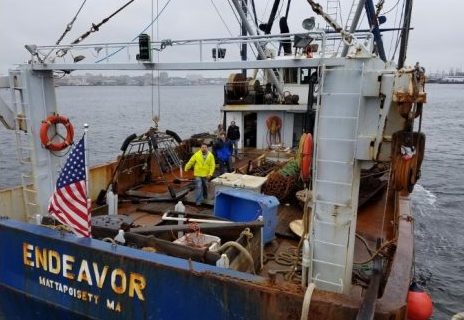
Don Cuddy: Stokesbury’s science continues to yield scallops for SouthCoast
It’s been a long and busy summer for Kevin Stokesbury and his team of scallop researchers at UMass Dartmouth’s School for Marine Science and Technology. But a lot of sea time, following many months of preparation, has paid off in a big way. “We surveyed the entire footprint of the scallop resource from Virginia all the way up to the Hague Line,” Kevin told me. “That’s 70,000 kilometers square, a huge area. We’re all really jazzed.” The data was gathered using the system developed by Kevin in the 90′s, dropping underwater cameras mounted on a steel pyramid to the sea bed from the deck of a commercial scalloper. The work began at the end of April and finished in mid-July. click here to read the story 19:27
Fed money for fish study a good sign
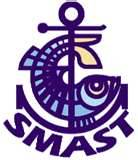 As part of $6.9 million in federal disaster relief, the National Marine Fisheries Service approved federal funds for an industry-based survey of Gulf of Maine cod, a species whose apparent decimation led to drastic reductions in catch limits and a fisheries disaster declaration. Gov. Charlie Baker and other Massachusetts elected officials have criticized federal fishery regulators for refusing to consider alternative scientific methods for estimating fish stocks. The School for Marine Science and Technology at UMass Dartmouth has developed new methods for assessing sea life. Read the rest here 08:34
As part of $6.9 million in federal disaster relief, the National Marine Fisheries Service approved federal funds for an industry-based survey of Gulf of Maine cod, a species whose apparent decimation led to drastic reductions in catch limits and a fisheries disaster declaration. Gov. Charlie Baker and other Massachusetts elected officials have criticized federal fishery regulators for refusing to consider alternative scientific methods for estimating fish stocks. The School for Marine Science and Technology at UMass Dartmouth has developed new methods for assessing sea life. Read the rest here 08:34
Fishing interests begin to map strategy with joint meeting of the Mayor’s Ocean and Fisheries Council / Federal Fishing Advisory Board.
NEW BEDFORD — When fisheries regulation gets a makeover in the next year or two, the New England fishery intends to get into the debate early to impress on regulators how badly served the region has been under existing rules.![]() That was the theme struck by Mayor Jon Mitchell Monday as he co-chaired a joint meeting of the Mayor’s Ocean and Fisheries Council with Rep. William Keating, D-Mass., representing the Federal Fishing Advisory Board. continued
That was the theme struck by Mayor Jon Mitchell Monday as he co-chaired a joint meeting of the Mayor’s Ocean and Fisheries Council with Rep. William Keating, D-Mass., representing the Federal Fishing Advisory Board. continued
Dartmouth budget amendment calls for School for Marine Science and Technology fisheries research with the state Division of Marine Fisheries
The earmark, if passed, would send the money to the School for Marine Science and Technology at the UMass Dartmouth in collaboration with the state Division of Marine Fisheries to assess the number of groundfish, including co![]() d and yellowtail. continued
d and yellowtail. continued



































